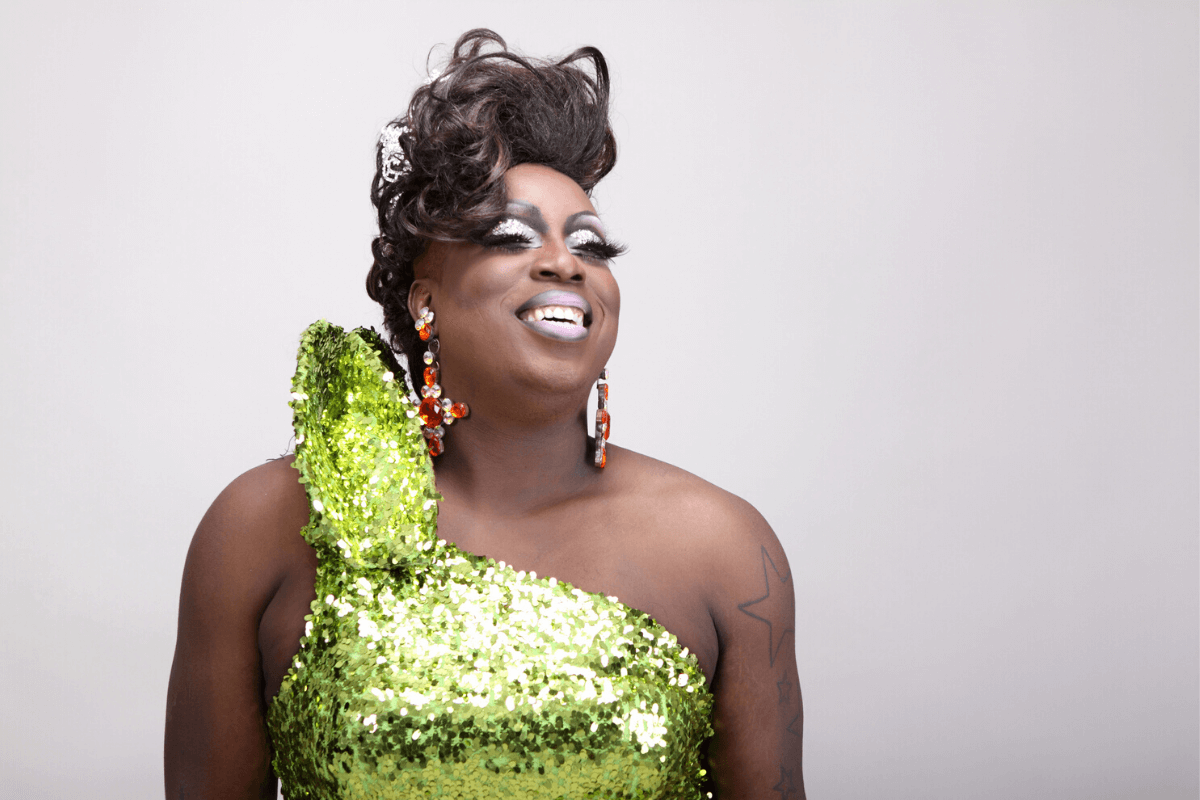Drag queens wear many hats. Often found in jaw-dropping outfits, strutting around in shoes so high I know I couldn’t walk in them, with makeup so fierce it’d leave you quaking in your boots, drag performance and everything it entails is an art form. Connecting with drag culture is to acknowledge histories that have been long forgotten, like the fact that the origins of voguing evolved from the ballrooms of 1960s-1980s New York - birthed by black and Latinx queer communities. Drag queens were voguing long before the likes of Madonna and her 1990 anthem graced our screens, see the Paris Is Burning documentary if you don’t believe me. Black drag queens have been leading the way and creating safe spaces for themselves for decades, often at times when they were told they don’t belong. So why are our black queens so often overlooked, shunned, and not given their time in the spotlight?
When RuPaul began his rise to fame, the world of drag was whitewashed. Most well-known performers were white, with RuPaul blessed as the one token black drag queen. Decades later, we have a plethora of vibrant black drag queens gracing the scene but hear and see little of them. Whilst it’s great to know that today we have a wider range of drag role models of colour to take inspiration from, such as Shangela, Kennedy Davenport, Coco Montrese, and Latrice Royale to name a few; it’s of little use if they’re stuck waiting in the wings, overshadowed by their white counterparts. The representation of race within drag queen culture is a conversation that’s long been neglected, but one we need to have.
Double standards are shown towards our drag queens of colour, reflecting modern-day society as a whole. The rise of racist views has been rapid over the last few years, and our queens of colour haven’t been exempt from this. Cultural appropriation in drag continues to go unaddressed and passed off as a joke, non-black drag queens imitating and appropriating black culture, yet not giving black queens the credit or recognition they deserve. No-one talks about appropriation in drag, yet how many times have you noticed white drag queens performing to the likes of Rihanna, Beyoncé, and Nicki Minaj? How can you justify imitating a black woman’s voice, yet you won’t give your fellow black queens a seat at the table?

When a black drag queen fights back, the fandom takes note. In season 10 of RuPaul’s Drag Race black drag queen The Vixen was seen arguing with white drag queen Aquaria in an episode of Untucked, an after-show that airs immediately after Drag Race. Aquaria was incessantly goading The Vixen, making snide comments and trying to get a rise out of her, and whenever The Vixen would clap back Aquaria would cry - instantly creating the angry black narrative were all too familiar with. It’s no surprise that the The Vixen was disregarded and silenced. TV series showcasing drag art and drag competitions fall victim to over-the-top editing to increase viewer count, they use their artistic license to construct black queens as the bad guys - queens that are hard to love but easy to hate. It’s too easy to villainise black drag queens. It’s sad to say, but the angry black stereotype also applies to the world of drag.
Whilst it’s common knowledge that drag culture and its fans can get pretty nasty, there’s limits to how far people should go. The online hate and racist abuse suffered by black drag queens is surreal. Season 10 Drag Race contestant Asia O’Hara shared that a fan had threatened to burn him alive, bringing back horrific memories and resurfacing old traumas as when O’Hara was 11 years-old a group of local boys attempted to set him on fire in real life for being gay. Season 9 Drag Race contestant Shea Couleé’s Instagram account was hacked publishing images of slaves in chains (attempting to refer to Shea’s heritage) and hash-tagging racist remarks, and on Drag Race All Stars Season 3 after Bebe Zahara Benet eliminated Aja keyboard warriors flocked to Bebe’s social media accounts leaving monkey emojis and calling her the n-word. Fans are now so openly hateful because of the current climate we live in (think Brexit and Trump) they believe this behaviour is acceptable, queens of colour are without a doubt targeted more aggressively than their peers.
Black drag queens have to work twice as hard to get just as far. The rise to fame is a common trajectory for white queens, they’re given the platform and opportunities to become stars in their own right, whilst our black queens fade into the background. It’s not impossible for our black queens, our Asian queens, our Latin queens, for all queens of colour to have their moment, but it’s a lot more challenging. Black drag queens are often put in boxes and expected to perform in a certain way limiting their potential, one of the many things discussed in Bob The Drag Queen and Monét X Change's podcast Sibling Rivalry. The responsibility of ending cultural appropriation and under appreciation in drag shouldn’t fall to our black drag queens, all queens should be making an effort to make visible the wide range of talent we all know and love. Black queens matter!
Written by J'Nae Phillips
Follow J'Nae on Twitter & Instagram







